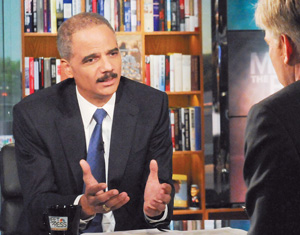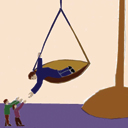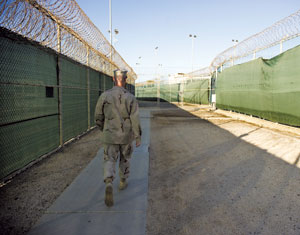Erwin Chemerinsky

May 13, 2013 | National Law Journal
'Miranda' and the ConstitutionIt has become increasingly evident that the Justice Department violated the constitutional rights of Boston bombing suspect Dzhokhar Tsarnaev by questioning him without his Miranda warnings. It is disturbing that the DOJ would risk its criminal prosecution by ignoring such basic rules and even more disturbing for what this says as to its view of the Constitution.
By Erwin Chemerinsky
5 minute read
July 27, 2012 | Daily Report Online
You get what you pay for in legal educationProfessor Brian Tamanaha, in his provocative new book, Failing Law Schools, argues for a new approach to legal education that involves law schools that are dramatically less expensive. In fact, he singles out for criticism me and the University of California, Irvine School of Law (UCI) for creating an "elite" law school rather than one charging students less than $20,000 a year. Although everyone wants legal education to be less expensive, he proposes a model that is economically impossible without dramatically decreasing the quality of legal education.
By Erwin Chemerinsky
6 minute read

July 01, 2013 | National Law Journal
Justice Kennedy's WorldThe U.S. Supreme Court's decision in Windsor reflected themes that have been present in Justice Kennedy's jurisprudence for years: a concern about federalism and a desire to protect gays and lesbians from discrimination.
By Erwin Chemerinsky
5 minute read
May 14, 2012 | Texas Lawyer
The Supreme Court and the Fourth AmendmentErwin Chemerinsky says he has long believed that the best predictor of whether the U.S. Supreme Court finds a violation of the Fourth Amendment is whether the justices could imagine it happening to them. For example, the Supreme Court upheld drug-testing requirements in every case until it considered a Georgia law that required that high-level government officials be subjected to it.
By Erwin Chemerinsky
6 minute read

October 27, 2008 | National Law Journal
Not a self-serving activityDennis Jacobs, the chief judge of the 2d Circuit, should be ashamed of himself. In a recent speech, it was reported that he said that pro bono work is an "antisocial" and self-serving activity that law firms use to recruit and "give solace" to associates. As a law professor (and now dean of a new law school), I work hard to encourage my students to use their training to help those who cannot afford legal services. Whatever their practice, they should spend time doing legal work without charging for it.
By Erwin Chemerinsky / Special to The National Law Journal
4 minute read
May 14, 2012 | Daily Business Review
The Supreme Court and the Fourth AmendmentErwin Chemerinkay says the nation's high court justices tend to find a violation if they can imagine the search applying to them personally.
By Erwin Chemerinsky
6 minute read
September 05, 2013 | New Jersey Law Journal
Broader Message of Stop and Frisk RulingA federal judge's criticisms of stop and frisk are a powerful call to change an institution's culture.
By Erwin Chemerinsky
5 minute read
May 03, 2004 | Law.com
Loose-Lipped Legal PunditsIt's time for a voluntary code of ethics for commentators.
By Erwin Chemerinsky, Laurie L. Levenson & Therese H. Maynard
5 minute read

May 07, 2012 | National Law Journal
The Court and the Fourth AmendmentThe Justices tend to find a violation if they can imagine the search applying to them personally.
By Erwin Chemerinsky
6 minute read

June 25, 2012 | National Law Journal
Losing interestSince the Supreme Court's latest ruling guaranteeing habeas corpus rights to Guantánamo detainees, in 2008, it has refused to hear a single detainee case.
By Erwin Chemerinsky
6 minute read
More from ALM
- Legal Speak at General Counsel Conference East 2024: Virginia Griffith, Director of Business Development at OutsideGC 1 minute read
- Legal Speak at General Counsel Conference East 2024: Bill Tanenbaum, Partner & Chair, AI & Data Law Practice Group at Moses Singer 1 minute read
- Legal Speak at General Counsel Conference East 2024: Julie Cantor, Associate General Counsel at Studs, Inc. 1 minute read



